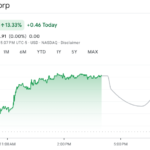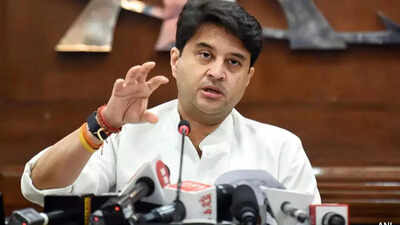The sweeping GST reforms announced this week will give a major push to India’s cooperative and farm sectors by reducing costs, boosting demand, and raising incomes, the Ministry of Cooperation said in a statement.The ministry noted that the reforms will particularly benefit rural enterprises, farmer producer organisations (FPOs), and women-led self-help groups engaged in food and milk processing. “GST rate reductions will benefit cooperatives in farming and animal husbandry, promote sustainable farming practices, and benefit small farmers and FPOs. The NextGenGST reforms brought under the leadership of Prime Minister Shri Narendra Modi Ji has been hailed by the entire dairy cooperative sector, including the big cooperative brands like AMUL,” it said, ANI quoted.In the dairy sector, milk and paneer—whether branded or unbranded—have been exempted from GST, while the tax on butter, ghee, and similar products has been cut from 12% to 5%. GST on milk cans made of iron, steel, or aluminium has also been reduced from 12% to 5%. The ministry said these changes will make dairy products more competitive, provide direct relief to farmers and consumers, and strengthen women-led rural enterprises.Food processing has also received a major boost, with GST on cheese, namkeens, butter, and pasta lowered to 5%. Jams, jellies, yeasts, bhujia, and fruit pulp or juice-based drinks now attract 5% GST, while chocolates, corn flakes, ice creams, pastries, cakes, biscuits, and coffee have also seen a reduction from 18% to 5%. “Lower GST will reduce household expenditure on food items, stimulate demand in semi-urban and rural areas, and promote growth in the food processing and dairy cooperative sectors,” the ministry added.The reforms extend to agriculture inputs and logistics. GST on key fertiliser inputs such as ammonia, sulphuric acid, and nitric acid has been reduced from 18% to 5%, correcting the inverted duty structure and lowering input costs for fertiliser companies. Bio-pesticides and micronutrients have also seen a cut to 5%, which the government said will promote eco-friendly farming and benefit organic farmers under the Natural Farming Mission.Tractors below 1800 cc and their components such as tyres, tubes, and hydraulic pumps will now attract only 5% GST, down from 18%. The GST on commercial goods vehicles such as trucks and delivery vans has been lowered from 28% to 18%, which the ministry said will reduce freight costs and improve export competitiveness. In addition, GST on third-party insurance of goods carriage has been cut from 12% to 5% with input tax credit.The government described the reforms as “next-generation GST changes,” announced just days after Prime Minister Narendra Modi referred to them in his Independence Day speech. The GST Council approved the sweeping rate cuts, which the government has described as a Diwali gift for citizens.











